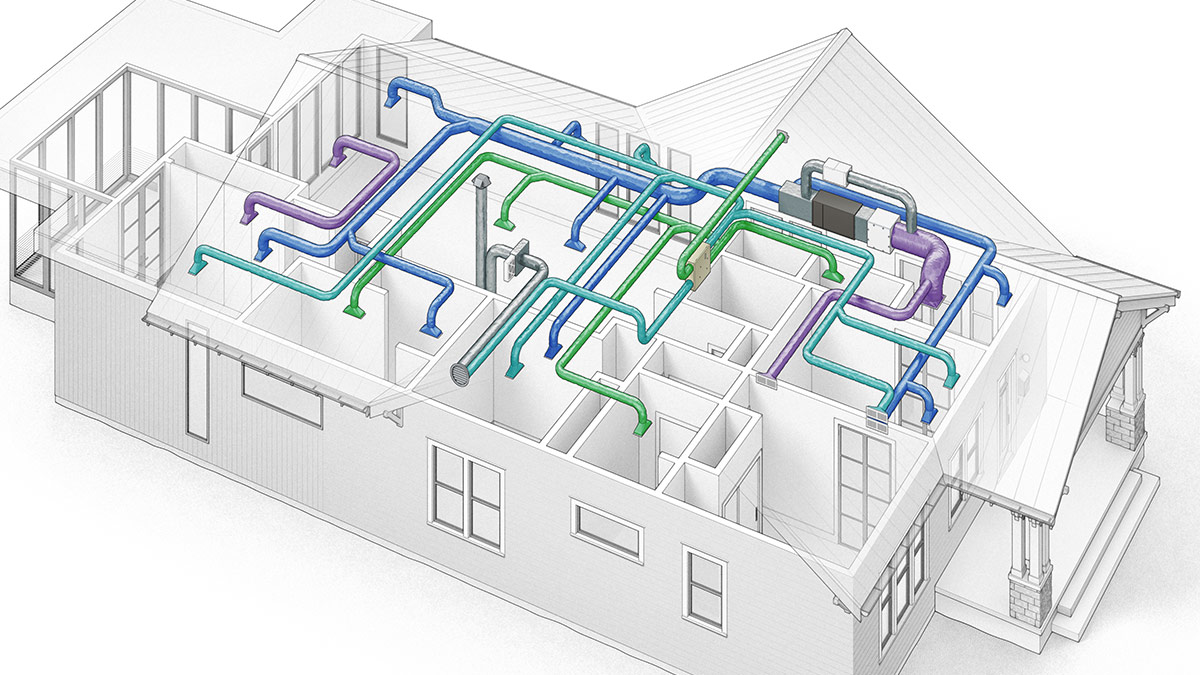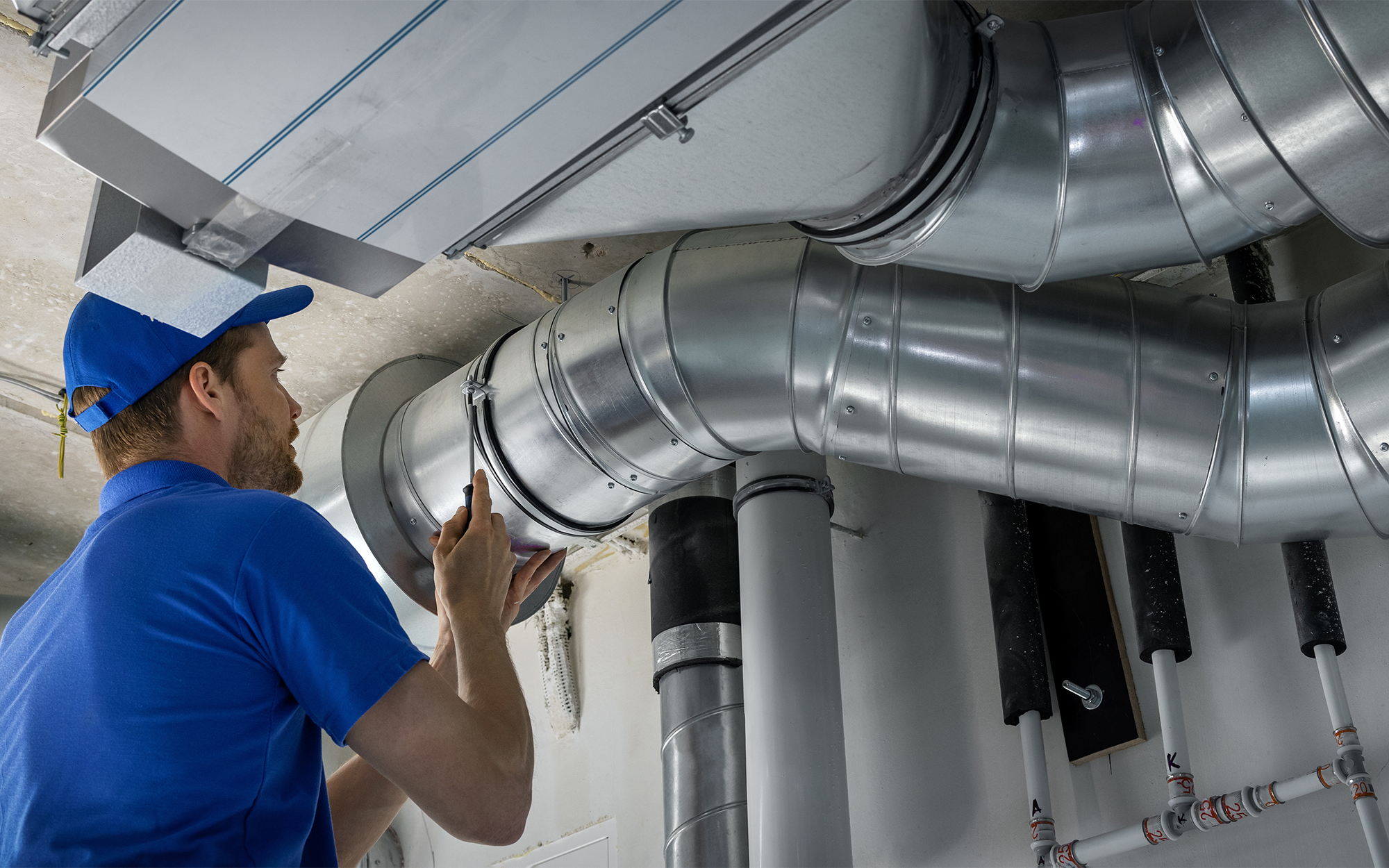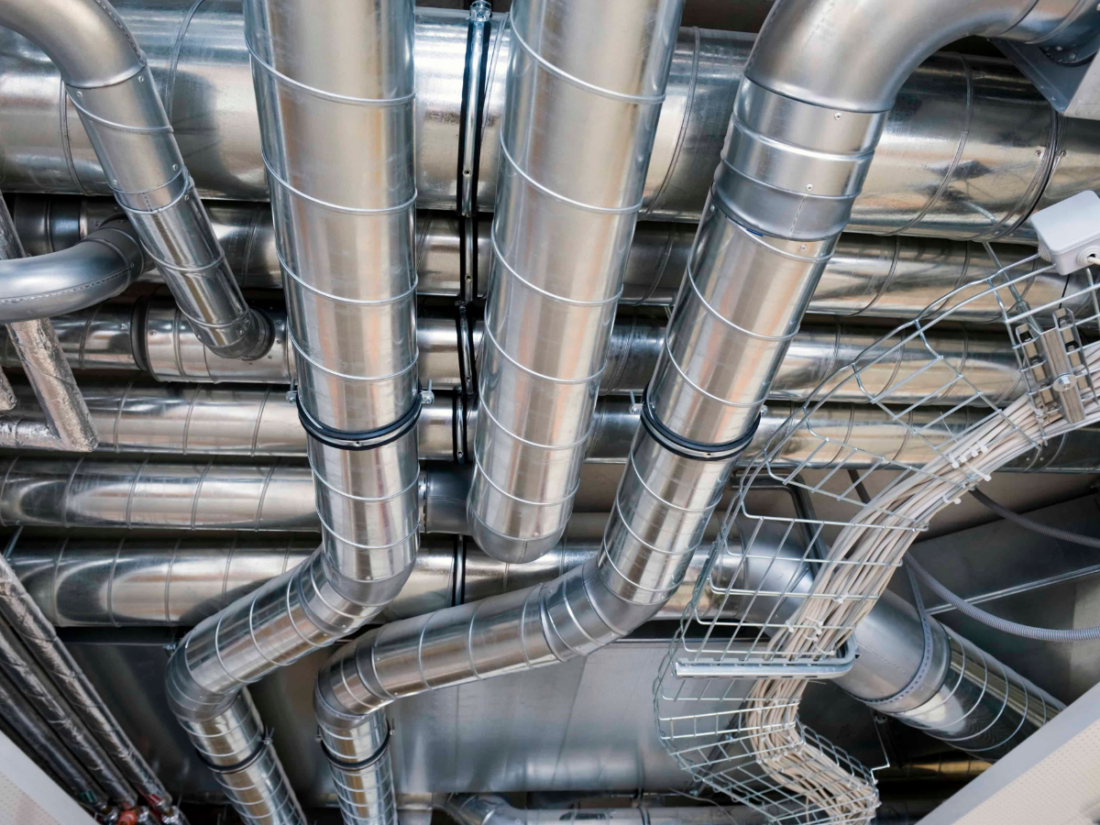Understand how HVAC experts provide anytime support for urgent issues
Discovering the Important Elements of an Effective Cooling And Heating System
A reliable HVAC system is improved numerous essential elements that work in harmony. Each part, from the thermostat to the ductwork, plays a necessary role in keeping comfort and power effectiveness. Comprehending these components is crucial for maximizing efficiency and boosting indoor air quality. As one examines these elements, the detailed relationships between them reveal understandings into boosting general system performance. What particular aspects contribute most to this effectiveness?
The Role of the Thermostat in Heating And Cooling Performance
Although commonly ignored, the thermostat plays a critical function in the effectiveness of cooling and heating systems. HVAC experts. This small device works as the key nerve center, managing temperature level settings and guaranteeing suitable convenience within a space. By precisely sensing the ambient temperature, the thermostat connects with the air, air flow, and heating conditioning units to preserve the desired environment
An efficient thermostat reduces power intake by triggering the heating and cooling system just when needed, therefore preventing excessive heating or cooling. Modern programmable and clever thermostats enhance this efficiency better by allowing users to set timetables and from another location readjust settings, adjusting to daily regimens.
Additionally, the placement of the thermostat is vital; improper place can bring about unreliable temperature readings, resulting in inefficient procedure. Generally, a well-functioning thermostat not just improves comfort yet likewise contributes substantially to energy financial savings and the longevity of the a/c system.
Comprehending the Significance of Air Filters
Air filters offer a necessary feature in HVAC systems by assuring that the air circulating within an area continues to be clean and healthy and balanced. These filters catch dust, irritants, and other toxins, stopping them from being recirculated throughout the setting. By recording these particles, air filters add to improved indoor air high quality, which can significantly profit owners' health, especially those with allergic reactions or respiratory conditions.
Furthermore, preserving tidy air filters boosts the efficiency of HVAC systems. Clogged up filters can limit air flow, triggering the system to function harder to keep preferred temperature levels, causing enhanced energy usage and greater energy costs. Regularly changing or cleansing filters is an important upkeep step that can lengthen the lifespan of cooling and heating equipment. Ultimately, understanding the importance of air filters enables home owners and structure supervisors to take positive measures to guarantee a well-functioning, effective a/c system that advertises a comfortable and safe interior setting.

The Functionality of the Heater and Warm Pump
Heaters and warm pumps are crucial components of HVAC systems, in charge of giving heat throughout chillier months. Heating systems operate by heating air with burning or electric resistance, after that distributing it throughout the home through ducts. They commonly offer quick heating and can be sustained by all-natural gas, electrical power, or oil, depending upon the system type.
Alternatively, warm pumps transfer warm as opposed to generate it. They extract warmth from the outside air or ground, also in low temperatures, and move it indoors. HVAC experts. This dual capability enables heatpump to additionally offer air conditioning in warmer months, making them functional options for year-round environment control
Both systems call for proper upkeep to assure efficiency and durability. While heating systems master severe cool, warm pumps can be useful in moderate climates. Comprehending their unique performances help property owners in picking the most appropriate choice for their home heating requires.
Exploring the Cooling Device
The cooling device is an essential part of a/c systems, offered in numerous types to fit different requirements. Understanding the efficiency rankings of these devices is crucial for making informed selections about energy usage and expense. This area will discover the varied types of a/c unit and clear up exactly how efficiency rankings effect performance.
Sorts Of Air Conditioners
While various factors influence the option of cooling systems, recognizing the different types readily available is essential for home owners and structure supervisors alike. Central air conditioners are designed to cool entire homes or structures, using a network of this air ducts for air flow. Home window devices provide an even more localized service, suitable for solitary rooms or small rooms. Mobile ac unit give flexibility, permitting customers to move the unit as required. Ductless mini-split systems are one more choice, incorporating the effectiveness of central systems with the comfort of zoning, as they call for no ductwork. Geothermal systems harness the planet's temperature level for energy-efficient air conditioning. Each type features unique advantages, making informed options vital for efficient climate control.

Effectiveness Ratings Clarified
Recognizing effectiveness rankings is crucial for picking the appropriate air conditioning system, as these metrics provide understanding right into the system's efficiency and energy usage. The most typical ranking for ac unit is the Seasonal Energy Effectiveness Proportion (SEER), which determines the cooling result during a normal cooling period split by the total electrical energy input. A greater SEER suggests far better efficiency. Furthermore, the Energy Efficiency Ratio (EER) is utilized for measuring performance under details conditions. One more important metric is the Energy Star certification, which symbolizes that a system meets rigorous power efficiency guidelines. By assessing these scores, consumers can make educated options that not just optimize comfort yet additionally decrease power expenses and environmental influence.
The Importance of Ductwork and Airflow
Efficient ductwork layout and airflow management play crucial functions in the total efficiency and performance of cooling and heating systems. Appropriate ductwork assurances that conditioned air is distributed evenly throughout an area, lessening temperature level fluctuations and boosting comfort. Properly designed ducts decrease resistance to air flow, minimizing the work on heating and cooling devices and inevitably reducing energy usage.
Air movement management entails strategically placing vents and signs up to enhance the circulation of air. This avoids usual problems such as chilly or hot places, which can take place when airflow is obstructed or improperly well balanced. Furthermore, the best duct products and insulation can better enhance performance by decreasing warmth loss or gain during air transportation.
An effective ductwork system not just adds to energy savings but can additionally prolong the life expectancy of HVAC tools by lowering unnecessary stress (HVAC experts). Recognizing the significance of ductwork and air movement is vital for accomplishing peak A/c system efficiency.
Normal Maintenance Practices to Enhance Efficiency
Regular maintenance practices are necessary for making sure peak efficiency of cooling and heating systems. These methods include regular assessments, cleaning, and necessary repair work to maintain the system running efficiently. Consistently changing air filters is vital, as blocked filters can obstruct air flow and minimize effectiveness. Additionally, service technicians must inspect and tidy evaporator and condenser coils to avoid overheating and power imp source wastefulness.
Yearly professional inspections are likewise recommended, as trained service technicians can determine prospective problems before they intensify. Lubricating moving parts decreases deterioration, adding to a longer life-span for the system. Additionally, making sure that the thermostat operates correctly help in maintaining suitable temperature level control.

Regularly Asked Questions
Just how Commonly Should I Replace My Thermostat?
Thermostats should typically be changed every 5 to 10 years, relying on usage and modern technology advancements. Routine checks are advisable to guarantee peak performance, specifically if experiencing inconsistent temperature control or boosted energy costs.
What Dimension Air Filter Is Best for My A/c System?
The most effective dimension air filter for a heating and cooling system varies by system design. Normally, it's important to speak with the proprietor's handbook or check the existing filter dimensions to ensure peak efficiency and air top quality.
Can I Set Up a Heatpump Myself?
Setting up a heat pump separately is possible for proficient individuals, yet it calls for expertise of electrical systems and local codes. Employing a specialist is recommended to assure proper installation and optimal system performance.
Just how Do I Know if My Ductwork Is Reliable?
To determine ductwork efficiency, one should check for leakages, procedure airflow at vents, evaluate insulation quality, and assess temperature differences in between supply and return ducts. Specialist analyses can provide thorough insights right into overall efficiency.
What Are Indications My A/c Demands Immediate Upkeep?
Signs that a HVAC system requires immediate upkeep consist of uncommon sounds, irregular temperatures, raised power costs, unpleasant smells, and regular biking. Resolving these concerns promptly can protect against more damages and assurance peak system efficiency.
Air filters serve a necessary function in Cooling and heating systems by assuring that the air flowing within an area remains tidy and healthy. weblink Furthermore, maintaining tidy air filters enhances the efficiency of Heating and cooling systems. Ductless mini-split systems are another choice, combining the performance of main systems with the convenience of zoning, as they need no ductwork. Understanding performance rankings is important for choosing the ideal air conditioning system, as these metrics supply insight right into the system's performance and power usage. The ideal dimension air filter for a Cooling and heating system varies by unit design.